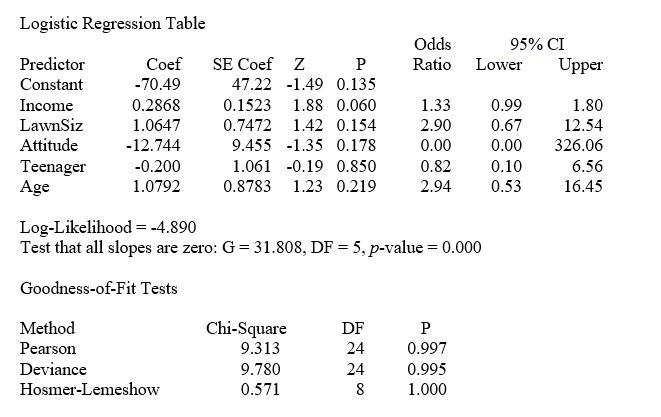TABLE 14-19
The marketing manager for a nationally franchised lawn service company would like to study the characteristics that differentiate home owners who do and do not have a lawn service. A random sample of 30 home owners located in a suburban area near a large city was selected; 15 did not have a lawn service (code 0) and 15 had a lawn service (code 1). Additional information available concerning these 30 home owners includes family income (Income, in thousands of dollars), lawn size (Lawn Size, in thousands of square feet), attitude toward outdoor recreational activities (Atitude 0 = unfavorable, 1 = favorable), number of teenagers in the household (Teenager), and age of the head of the household (Age).
The Minitab output is given below: 
-Referring to Table 14-19, what are the degrees of freedom for the chi-square distribution when testing whether the model is a good-fitting model?
Definitions:
Q9: Referring to Table 14-3,to test for the
Q12: Referring to Table 13-3,suppose the director of
Q47: True or False: Referring to Table 12-11,the
Q57: Referring to Table 12-16,the alternative hypothesis of
Q57: True or False: Using the C<sub>p</sub><sub> </sub>statistic
Q60: Referring to Table 14-19,what is the estimated
Q102: Referring to Table 13-12,what are the critical
Q169: True or False: Referring to Table 12-11,the
Q229: Referring to Table 14-3,to test whether aggregate
Q272: True or False: Referring to Table 14-18,there